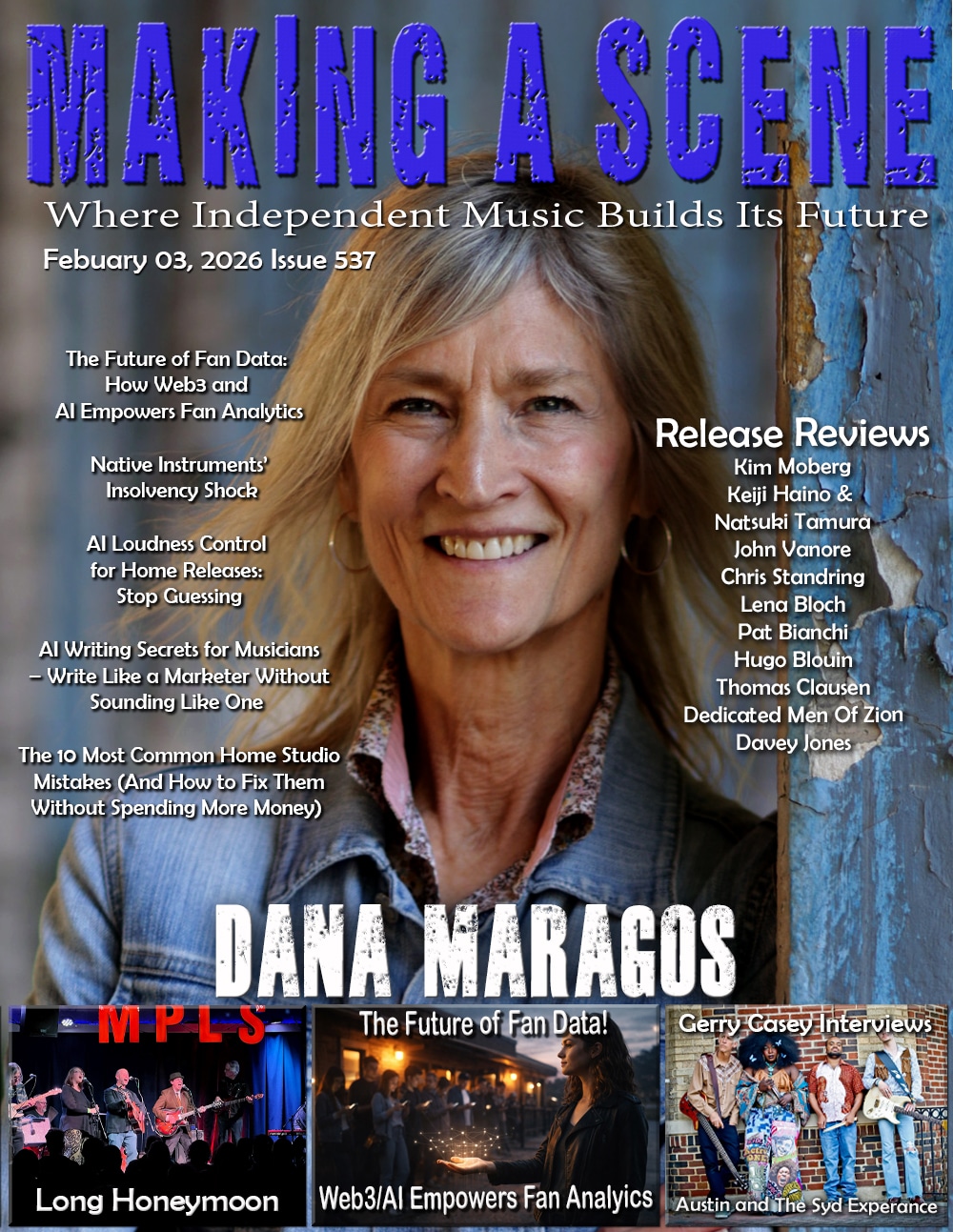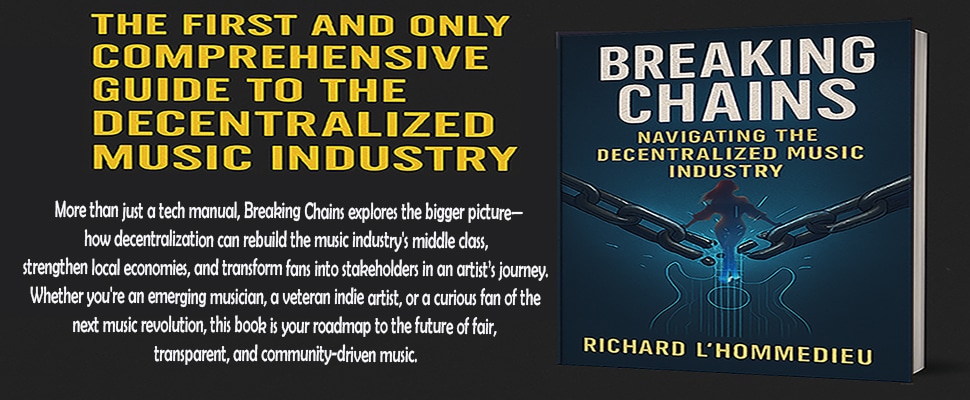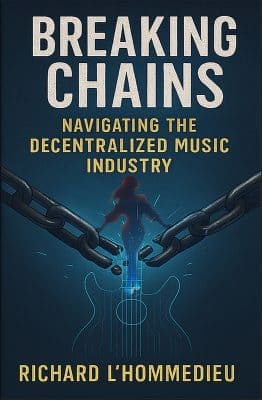ChatGPT’s Hidden Superpowers: How Musicians Can Use AI to Promote and Produce Music
Making a Scene – ChatGPT’s Hidden Superpowers: How Musicians Can Use AI to Promote and Produce Music
If you’re an indie artist, producer, or music marketer, you’ve probably heard of ChatGPT. Maybe you’ve used it to write a quick caption or help brainstorm ideas. But here’s a secret: most people are only scratching the surface of what ChatGPT can really do.
There are hidden features buried inside this AI that most musicians don’t know about. These aren’t just tips like “Ask ChatGPT for help writing a post.” We’re talking about power tools—advanced modes, special tricks, and behind-the-scenes tech—that can help you promote, plan, and even produce music faster, smarter, and cheaper.
In this article, we’re going to uncover the hidden side of ChatGPT—the stuff that makes it more than just a chatbot. We’ll show you how to turn it into a music marketing machine, a tour planner, a release strategist, and even a virtual team of assistants, all with just a few smart prompts.
Let’s crack open the toolbox and see what this thing can really do.
1. Agent Mode: Your AI Assistant Goes Pro
Let’s start with something most users don’t even know exists: Agent Mode.
What Is Agent Mode?
Agent Mode turns ChatGPT into a long-term, memory-based assistant that can keep track of your projects over time. You can ask it to remember your artist name, genre, release plans, brand colors, target audience, and more.
Instead of starting from scratch every time, your AI assistant builds a memory of your career and works with you like a smart music manager.
How to Use It
Say:
“Remember that I’m a pop-rock artist from Atlanta named Lila Storm. My next single is dropping in October and it’s called ‘Midnight Wires.’ My target audience is moody teens who live on TikTok.”
ChatGPT will store that info. Next time, you can say:
“Remind me what we said about my October release.”
And it’ll pull up your previous goals, strategy ideas, and fan profile instantly. That’s Agent Mode in action—like having a digital assistant who actually listens.
2. Custom Instructions: Build a ChatGPT That Thinks Like You
Before you even type your first prompt, you can train ChatGPT to think and talk in your voice using something called Custom Instructions.
You’ll find this in your settings (look for something like “Customize ChatGPT”).
How It Works
You can tell ChatGPT things like:
-
“I’m a music producer who specializes in underground trap beats.”
-
“Talk to me like a chill marketing coach who explains things simply.”
-
“Always write in a rebellious, inspiring tone.”
Once you set this up, ChatGPT tailors every response based on your style. This is huge for staying consistent with your brand.
Now, when you ask for help writing an Instagram bio or a TikTok caption, the results will already sound like you.
3. Multimodal Magic: Use Images, Charts, and Files
If you’re using GPT-4 with Pro access, you’ve got access to a multimodal version of ChatGPT—which is a fancy way of saying it can “see” pictures and “read” files.
Use Cases for Musicians:
-
Upload your tour poster and ask: “What can I improve about this design?”
-
Drop a spreadsheet of past tour dates, and say: “Analyze this and suggest which cities had the best turnout.”
-
Paste your EPK PDF and say: “Write a press release based on this.”
ChatGPT will read and process images, spreadsheets, charts, PDFs—even screenshots from your DAW or Instagram stats—and help you do something with them.
This turns ChatGPT into your marketing analyst, graphic consultant, and press team in one.
4. Code Interpreter (a.k.a. Advanced Data Analysis)
This next one sounds scary but it’s incredibly useful: Code Interpreter. You don’t need to know how to code. Think of this as your data wizard.
What It Can Do:
-
Analyze your Spotify for Artists CSV data to find patterns in your streams
-
Calculate best posting times based on engagement logs from Instagram or TikTok
-
Convert messy spreadsheets into clean charts for presentations or label meetings
Say:
“Here’s a spreadsheet of my monthly merch sales. What products sell best in winter vs summer?”
Boom. It’ll graph it out, do the math, and help you make smarter choices. You just became your own business analyst.
5. Prompt Chaining: Turn One Idea into a Whole Campaign
Here’s a sneaky trick the pros use: prompt chaining.
This means asking ChatGPT to remember the output from one task and build the next task from that. You create a chain of connected responses—like assembling a full campaign.
Example Chain:
-
“Write a tagline for my new electro-pop album ‘Neon Skeletons.’”
-
“Now turn that tagline into a Twitter thread explaining the album’s concept.”
-
“Now give me 5 TikTok video ideas that match that thread.”
-
“Now suggest hashtags and a posting calendar for those TikToks.”
You started with a single idea. Now you’ve got a multi-platform promo campaign. That’s prompt chaining. And it’s one of ChatGPT’s hidden weapons.
6. Roleplaying Mode: Hire a Fake Publicist, Manager, or Designer
Did you know you can make ChatGPT pretend to be someone else? It’s called roleplaying mode, and it’s perfect for musicians without a full team.
Try These:
-
“Act like a publicist. Write me a 3-month promo plan.”
-
“Pretend you’re a tour manager. Help me plan a weekend mini-tour with a $1,000 budget.”
-
“You are a social media consultant. Audit my Instagram bio and posts.”
It will literally take on that role and speak to you like a hired expert. This is perfect for testing strategies without paying for a full marketing team.
You can even say:
“You are a sarcastic Gen Z fan on TikTok. Give me 3 post ideas that would go viral.”
And the results are scarily accurate.
7. Vision Board Assistant: Generate Visual Prompts for AI Art
If you use AI art tools like MidJourney, DALL·E, or Runway, you know that writing a good prompt makes all the difference. But writing those prompts can be hard.
That’s where ChatGPT comes in.
Say This:
“Give me a prompt for a wide, photorealistic image of a female DJ spinning in a neon desert rave, futuristic but warm in tone.”
ChatGPT will build a perfect prompt with lighting, angles, camera settings, and emotion words—ready to copy and paste into your art generator.
This is awesome for:
-
Album covers
-
Merch designs
-
Music video moodboards
-
Instagram story art
You can even ask it to give you variations: dark version, grunge version, retro version, etc.
8. Auto-Personalized DMs and Fan Messages
Here’s a dirty little secret: a lot of the “personal” messages from artists aren’t written by them at all. They’re written by AI—and ChatGPT can do the same for you.
Try:
“Write a thank-you message to a fan who just bought my vinyl.”
You’ll get a warm, friendly message. Then you can say:
“Now make it more funny and Gen Z.”
Or:
“Make it more emotional and heartfelt.”
Now copy and paste, or even automate it with email tools like MailerLite, ConvertKit, or Substack.
This is great for:
-
Thank-you notes
-
Welcome messages to new fans
-
Personalized merch receipts
-
Exclusive access invites
9. Brainstorming Collaborations and Partnerships
Want to find smart ways to grow your network or do collabs? Use ChatGPT as a music business brainstormer.
Try asking:
“List 10 ways I can collaborate with local coffee shops to promote my new EP.”
Or:
“What are creative merch items for an EDM artist who loves gaming and anime?”
It’ll generate off-the-wall ideas you may have never considered—limited vinyl with matching comic books, collectible pins with QR codes, custom art drops, pop-up listening parties. You name it.
10. Smart Scheduling and Reminders (with Plugins or API)
While ChatGPT can’t schedule things by itself yet, you can connect it to calendars, Google Sheets, or project managers using Zapier, plugins, or external apps.
With those connections, ChatGPT becomes your content scheduler or release manager.
Say:
“Based on my goal to release a single every 6 weeks, build me a full content calendar through December.”
Then copy that calendar into your Notion, Trello, or Google Calendar setup and use it to stay on track.
You can even say:
“Set reminders for when to order merch, book press outreach, and film teaser videos.”
Now you’re thinking like a label—with an AI assistant at your side.
Final Thoughts: You’re Not Just Using AI—You’re Training It
Here’s the big takeaway: the more you work with ChatGPT, the smarter it gets.
It learns your style, remembers your goals, and starts anticipating what you need next. You don’t need to be a tech expert. You just need to start using it like a teammate, not a toy.
So if you’re serious about growing your music career—without burning out—these hidden features can turn ChatGPT into your most powerful tool.
It’s time to stop using AI like a novelty and start using it like an industry secret.
Go ahead. Ask it:
“Help me build a music empire.”
Then start building.
Buy Us a Cup of Coffee!
Join the movement in supporting Making a Scene, the premier independent resource for both emerging musicians and the dedicated fans who champion them.
We showcase this vibrant community that celebrates the raw talent and creative spirit driving the music industry forward. From insightful articles and in-depth interviews to exclusive content and insider tips, Making a Scene empowers artists to thrive and fans to discover their next favorite sound.
Together, let’s amplify the voices of independent musicians and forge unforgettable connections through the power of music
Make a one-time donation
Make a monthly donation
Make a yearly donation
Buy us a cup of Coffee!
Or enter a custom amount
Your contribution is appreciated.
Your contribution is appreciated.
Your contribution is appreciated.
DonateDonate monthlyDonate yearlyYou can donate directly through Paypal!
Subscribe to Our Newsletter
Order the New Book From Making a Scene
Breaking Chains – Navigating the Decentralized Music Industry
Breaking Chains is a groundbreaking guide for independent musicians ready to take control of their careers in the rapidly evolving world of decentralized music. From blockchain-powered royalties to NFTs, DAOs, and smart contracts, this book breaks down complex Web3 concepts into practical strategies that help artists earn more, connect directly with fans, and retain creative freedom. With real-world examples, platform recommendations, and step-by-step guidance, it empowers musicians to bypass traditional gatekeepers and build sustainable careers on their own terms.
More than just a tech manual, Breaking Chains explores the bigger picture—how decentralization can rebuild the music industry’s middle class, strengthen local economies, and transform fans into stakeholders in an artist’s journey. Whether you’re an emerging musician, a veteran indie artist, or a curious fan of the next music revolution, this book is your roadmap to the future of fair, transparent, and community-driven music.
Get your Limited Edition Signed and Numbered (Only 50 copies Available) Free Shipping Included
Discover more from Making A Scene!
Subscribe to get the latest posts sent to your email.










